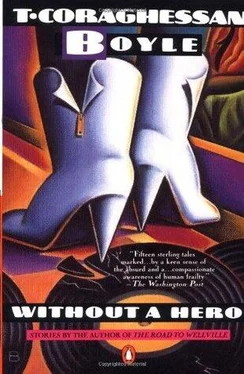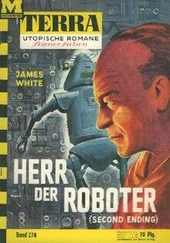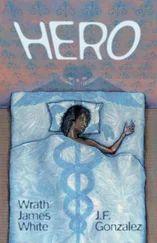T. Boyle - Without a Hero
Здесь есть возможность читать онлайн «T. Boyle - Without a Hero» весь текст электронной книги совершенно бесплатно (целиком полную версию без сокращений). В некоторых случаях можно слушать аудио, скачать через торрент в формате fb2 и присутствует краткое содержание. Год выпуска: 1995, Издательство: Penguin Books, Жанр: Современная проза, на английском языке. Описание произведения, (предисловие) а так же отзывы посетителей доступны на портале библиотеки ЛибКат.
- Название:Without a Hero
- Автор:
- Издательство:Penguin Books
- Жанр:
- Год:1995
- ISBN:нет данных
- Рейтинг книги:3 / 5. Голосов: 1
-
Избранное:Добавить в избранное
- Отзывы:
-
Ваша оценка:
- 60
- 1
- 2
- 3
- 4
- 5
Without a Hero: краткое содержание, описание и аннотация
Предлагаем к чтению аннотацию, описание, краткое содержание или предисловие (зависит от того, что написал сам автор книги «Without a Hero»). Если вы не нашли необходимую информацию о книге — напишите в комментариях, мы постараемся отыскать её.
Greasy Lake
People
Without a Hero
The Philadelphia Inquirer
Without a Hero — читать онлайн бесплатно полную книгу (весь текст) целиком
Ниже представлен текст книги, разбитый по страницам. Система сохранения места последней прочитанной страницы, позволяет с удобством читать онлайн бесплатно книгу «Without a Hero», без необходимости каждый раз заново искать на чём Вы остановились. Поставьте закладку, и сможете в любой момент перейти на страницу, на которой закончили чтение.
Интервал:
Закладка:
Jamie, who’d been blowing softly into the aperture of his beer bottle, looked perturbed. “But how do you know?” he demanded, settling his eyes on Judy. “I mean, were you there? Did you see it, like maybe from another boat?”
She hadn’t seen it. She wasn’t there. She’d read about it in the paper.
“Uh-uh,” Jamie scolded, wagging his finger. “No fair. You have to have seen it, actually been there.”
The older guy leaned forward, lit a cigarette and told about an accident he’d witnessed on the freeway. He was coming back from the desert on a Monday night, the end of a three-day weekend, and there was a lot of traffic, but it was moving fast. Four guys in a pickup passed him — three in the cab, the fourth outside in the bed of the truck. A motorcycle stood beside him, lashed upright in the center of the bed. They passed on the right, and they were going at a pretty good clip. Just then, feeling a little bored and left out, the guy in the back of the truck mounted the motorcycle, as a joke. He got up on the seat, leaned into the wind raking over the top of the cab and pretended he was heading into the final lap of the motocross. Unfortunately — and this was the morbid thrill of the exercise; there was always a pathetic adverb attached to the narrative, a “sadly” or “tragically” or “unfortunately” to quicken the audience’s blood — unfortunately, traffic was stalled ahead, the driver hit the brakes and the erstwhile motocross champion careened into the cab and went sailing out over the side like an acrobat. And like an acrobat, miraculously, he picked himself up unhurt. The older guy paused, flicked the ash from his cigarette. But unfortunately — and there it was again — the next car hit him in the hips at sixty and flung him under the wheels of a big rig one lane over. Eight more cars hit him before the traffic stopped, and by then there wasn’t much left but hair and grease.
Hilary told the story of the “Tiger Man,” who stood outside the tiger exhibit at the L.A. Zoo eight hours a day, seven days a week, for an entire year, and then was discovered one morning on the limb of a eucalyptus that hung thirty feet over the open enclosure, in the instant before he lost his balance. She was working the concession stand at the time, a summer job while she was in college, and she heard the people round the tiger pit screaming and the tigers roaring and snarling and thought at first they were fighting. By the time she got there the tiger man was in two pieces and his insides were spread out on the grass like blue strings of sausage. They had to shoot one of the tigers, and that was a shame, a real shame.
Jamie was next. He started in on the story of Renaldo the Great as if it were an eyewitness account. “I was like at this circus in Guadalajara,” he said, and my mind began to drift.
It was my turn next, and the only death I could relate, the only one I’d witnessed face to face and not in some voyeuristic video or the pages of Newsweek or Soldier of Fortune , a true death, the dulling of the eyes, the grip gone lax, the passing from animacy to quietus, I’d never spoken of, not to anyone. The face of it came back to me at odd moments, on waking, starting the car, sitting still in the impersonal dark of the theater before the trailers begin to roll. I didn’t want to tell it. I wasn’t going to. When Jamie was done, I was going to excuse myself, lock the bathroom door behind me, lean over the toilet and flush it and flush it again till they forgot all about me.
I was sixteen. I was on the swim team at school, bulking up, pushing myself till there was no breath left in my body, and I entertained visions of strutting around the community pool in the summer with a whistle round my neck. I took the Coast Guard-approved lifesaving course and passed with flying colors. It was May, an early searing day, and I wheeled my mother’s tubercular Ford out along the ocean to a relatively secluded beach I knew, thinking to do some wind sprints in the sand and pit my hammered shoulders and iron legs against the elemental chop and roll of the Pacific. I never got the chance. Unfortunately. I came down off the hill from the highway and there was a Mexican kid there, nine or ten years old, frantic, in full blind headlong flight, running up the path toward me. His limbs were sticks, his eyes inflamed, and the urgency rode him like a jockey. “ Socorro? ” he cried, the syllables catching in his throat, choking him. “ Socorro! ” he repeated, springing up off his toes, and he had me by the arm in a fierce wet grip, and we were running.
The sand flared with reflected light, the surf broke away to the horizon beneath the blinding ache of the sky, I felt my legs under me, and there it was, the moment, the face of it, lying there in the wash like some elaborate offering to the gulls. A man, big-bellied and dark, his skin slick with the wet, lay facedown in the sand as if he’d been dropped from the clouds. The boy choked and pleaded, too wrought up even for tears, the story I didn’t want to hear spewing out of him in a language I couldn’t comprehend, and I bent to the man and turned him over.
He wasn’t sleeping. No sleep ever looked like that. The eyes were rolled back in his head, white flecks of vomit clung to his lips and stained the dead drooping mustache, and his face was huge, bloated, as if it had been pumped up with gas, as if in a minute’s time a week had elapsed and all the rot inside him was straining to get out. There was no one else in sight. I straddled that monstrous head, cleared the dark slab of the tongue, pressed the side of my face to the sand-studded chest. I might have heard something there, faint and deep, the whisper of the sea in a smooth scalloped shell, but I couldn’t be sure.
“ Mi padre ,” the boy cried, “ mi padre .” I was a lifesaver. I knew what to do. I knew the moment had come to pinch shut those gaping nostrils, bend my lips to the dark hole beneath the vomit-flecked mustache and breathe life into the inert form beneath me, mouth to mouth.
Mouth to mouth. I was sixteen years old. Five and a half billion of us on the planet, and here was this man, this one, this strange dark individual with the unseeing eyes and lips slick with phlegm, and I couldn’t do it. I gave the boy a look, and it was just as if I’d pulled out a handgun and shot him between the eyes, and then I got to my feet in a desperate scramble — think of a kitten plucked from the sleeping nest of its siblings, all four paws lashing blindly at the air — got to my feet, and ran.
My own father died when I was an infant, killed in a plane crash, and though I studied photos of him when I was older, I always pictured him as some faceless, mangled corpse risen from the grave like the son in “The Monkey’s Paw.” It wasn’t a healthy image, but there it was.
My mother was different. I remember her as being in constant motion, chopping things on the drainboard while the washer chugged round, taking business calls — she was an accountant — and at the same time reaching for the sponge to scrub imaginary fingerprints off the white kitchen phone, all in a simultaneous and never-ceasing whirl. She died when I was thirty-two — or “passed on,” as she would have had it. I wasn’t there. I don’t know. But as I’ve heard it told, digging round the crust of politesse and euphemism like an archaeologist unearthing a bone, there was no passing to it at all, no gentle progress, no easeful journey.
She died in public, of a heart attack. An attack. A seizure. A stroke. Violent and quick, a savage rending in the chest, no passing on, no surcease, no privacy, no dignity, no hope. She was shopping. At Safeway. Five-thirty in the afternoon, the place packed to the walls, the gleaming carts, this item and that, the little choices, seventeen point five cents an ounce as opposed to twenty-two point one. She writhed on the floor. Bit her tongue in two. Died. And all those faces, every one of them alive and condemned, gazing down on her in horror, all those dinners ruined, all that time wasted at the checkout counter.
Читать дальшеИнтервал:
Закладка:
Похожие книги на «Without a Hero»
Представляем Вашему вниманию похожие книги на «Without a Hero» списком для выбора. Мы отобрали схожую по названию и смыслу литературу в надежде предоставить читателям больше вариантов отыскать новые, интересные, ещё непрочитанные произведения.
Обсуждение, отзывы о книге «Without a Hero» и просто собственные мнения читателей. Оставьте ваши комментарии, напишите, что Вы думаете о произведении, его смысле или главных героях. Укажите что конкретно понравилось, а что нет, и почему Вы так считаете.











